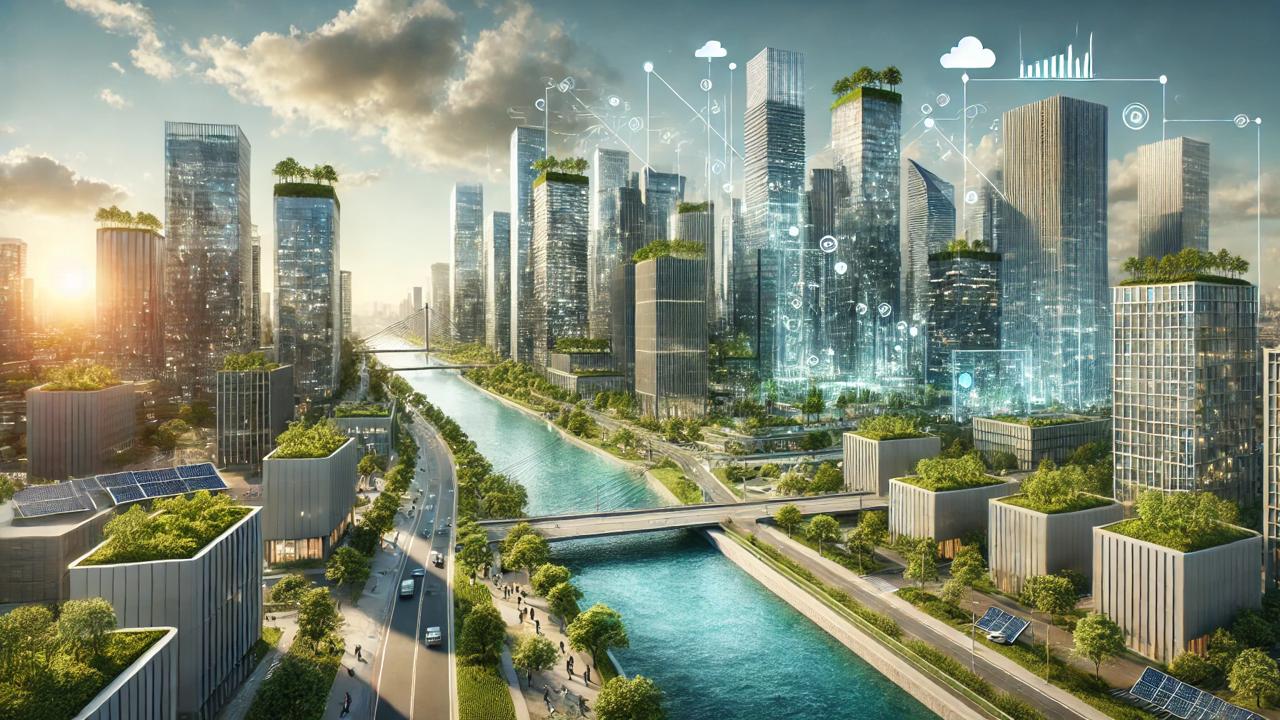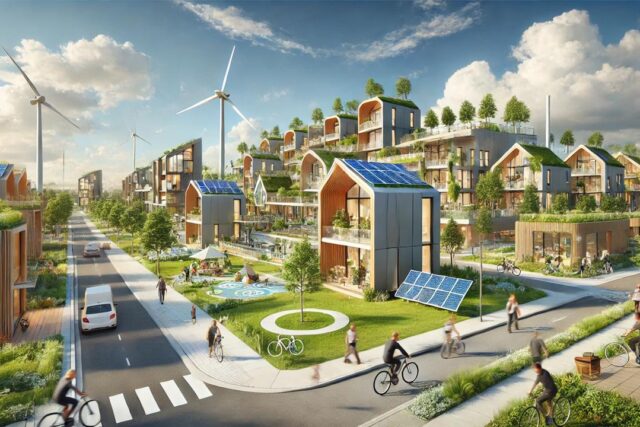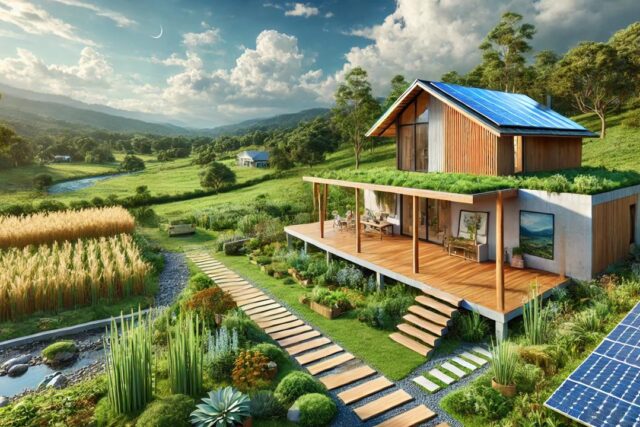
The real estate industry plays a critical role in shaping sustainable development and reducing environmental impact. As climate concerns intensify, developers, investors, and policymakers are adopting eco-friendly practices to minimize carbon footprints.
In this article, we will explain Real Estate Industry’s Role in Climate Initiatives. Sustainable initiatives in real estate are not just an ethical choice; they also offer long-term financial benefits, making them an attractive option for stakeholders.
The Shift Towards Green Building Practices
The adoption of green building practices has significantly transformed the real estate industry. Developers are increasingly prioritizing energy-efficient designs, sustainable materials, and eco-conscious construction techniques. Smart technologies, solar energy, and water-saving solutions are becoming essential components of modern buildings.
One of the most effective strategies in green building is the use of renewable energy sources. Solar panels, wind turbines, and geothermal systems help reduce reliance on fossil fuels while lowering operational costs. Additionally, advanced insulation and energy-efficient windows contribute to reducing energy consumption.
How Real Estate Developers Are Embracing Sustainability
Sustainability has become a key focus for real estate developers worldwide. Many are incorporating eco-friendly materials, energy-efficient designs, and smart building technologies to reduce environmental impact. Sustainable construction involves using recycled or locally sourced materials, minimizing waste, and optimizing land use.
Furthermore, developers are now designing buildings that promote health and well-being. Features such as natural lighting, green roofs, and improved ventilation systems enhance indoor air quality and create healthier living and working environments. With increased consumer demand for environmentally responsible properties, developers are motivated to adopt greener solutions.
The Impact of Green Building on Property Market Trends
The demand for sustainable properties is driving significant changes in the property market. The impact of green building on property market trends is evident in rising property values and increased interest from investors. Buyers and tenants prefer eco-friendly homes and office spaces, leading to higher occupancy rates and better rental yields for green buildings.
Government policies and incentives further accelerate this shift. Tax credits, grants, and regulatory frameworks encourage property developers to adopt sustainable practices. Additionally, companies aiming for environmental, social, and governance (ESG) compliance are more likely to invest in green real estate projects, further shaping market trends.
The Role of Smart Cities in Climate Action
Smart cities integrate technology and sustainability to create efficient urban spaces. Real estate developers contribute by designing smart buildings that incorporate IoT-enabled energy management systems, automated lighting, and waste reduction mechanisms. These innovations help cities lower emissions, reduce resource consumption, and enhance residents’ quality of life.
Moreover, urban planning now includes green spaces, bike lanes, and pedestrian-friendly infrastructure to reduce car dependency and encourage eco-friendly transportation. This holistic approach aligns real estate development with climate action goals and fosters sustainable urban growth.
Challenges in Implementing Sustainable Real Estate Practices
Despite the many advantages of green real estate, there are challenges that developers face in implementing sustainable practices. High initial costs, regulatory complexities, and a lack of awareness among stakeholders can slow down the transition. Additionally, retrofitting older buildings to meet new sustainability standards can be expensive and time-consuming.
However, innovations in financing and increased consumer demand are addressing these barriers. Green bonds, sustainability-linked loans, and government incentives help developers offset costs and accelerate sustainable real estate projects.
Future Prospects of the Real Estate Industry in Climate Initiatives
The future of the real estate industry is closely linked to global climate initiatives. As technology advances and sustainability becomes a necessity, developers will continue to innovate and adapt. Net-zero buildings, carbon-neutral construction materials, and AI-driven energy optimization systems are expected to shape the next generation of real estate.
In addition, stricter environmental regulations and increased investor interest in ESG-compliant assets will push the industry toward greater sustainability. The real estate industry’s commitment to climate initiatives will not only protect the planet but also create long-term economic benefits.
Conclusion
The real estate industry plays a pivotal role in climate action by adopting sustainable building practices, embracing smart technologies, and responding to changing market demands. Green buildings and eco-friendly urban planning contribute to reducing carbon footprints, enhancing property value, and promoting healthier living environments. While challenges exist, the continued commitment to climate initiatives will ensure a more sustainable and resilient real estate sector for future generations






Leave a Reply
You must be logged in to post a comment.